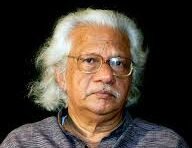Thiruvananthapuram: Acclaimed filmmaker Adoor Gopalakrishnan has stirred widespread controversy with his recent comments on a Kerala government initiative aimed at empowering filmmakers from Scheduled Castes and Scheduled Tribes (SC/ST) communities. Speaking at a public event, Adoor stressed that while he supports financial aid for marginalised creators, such assistance should follow proper training and orientation to ensure meaningful outcomes.
His remarks, however, have triggered a strong backlash from Dalit rights groups and progressive organizations, who accused him of undermining a much-needed move toward inclusivity in the Malayalam film industry. A formal complaint has been lodged against the veteran director, alleging caste-based bias and an attempt to discredit the government’s affirmative action in cinema.
Responding to the criticism, Adoor clarified that his views were misinterpreted. “I am not against financial support. But for the initiative to succeed, recipients must be adequately trained so they can make impactful films. Otherwise, the funds may be wasted,” he stated.
The government scheme, which provides grants to SC/ST aspiring filmmakers, is part of a broader effort to democratize filmmaking and elevate voices that have historically been excluded from the cultural mainstream. Supporters argue the initiative is a vital step in correcting systemic inequalities and enabling authentic storytelling from marginalized perspectives.
As debate intensifies, voices from across Kerala’s artistic and political spectrum have weighed in. While some back Adoor’s call for capacity-building, others view the outrage as a wake-up call to confront deeper structural barriers in the film industry. Many are urging a more nuanced, inclusive conversation that balances opportunity with mentorship.
The episode has once again spotlighted the fault lines of privilege, access, and representation in Kerala’s cultural discourse—raising critical questions about who gets to tell stories, and on what terms.




